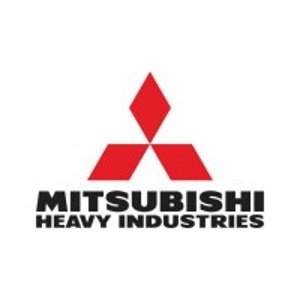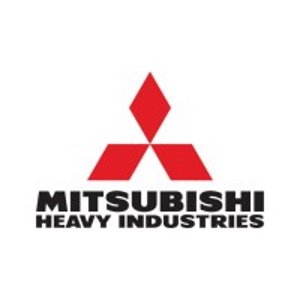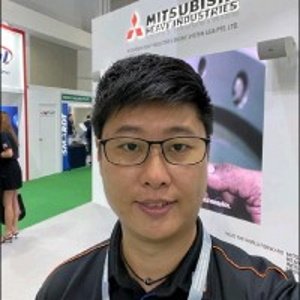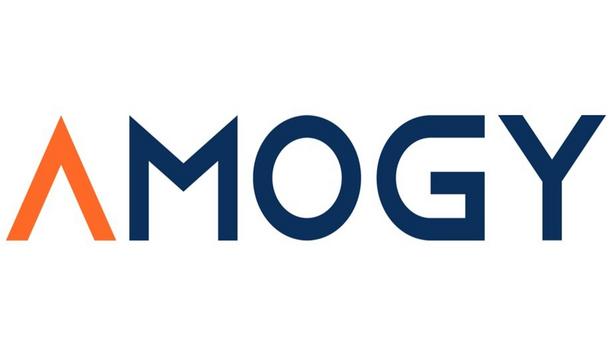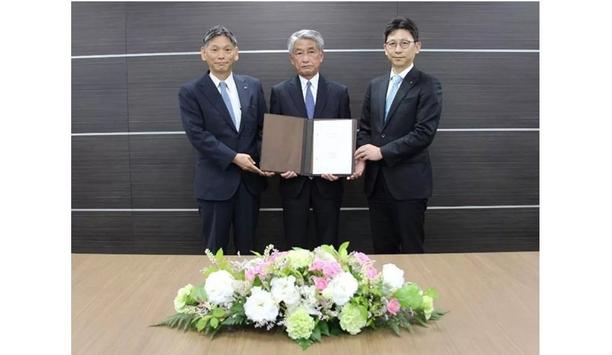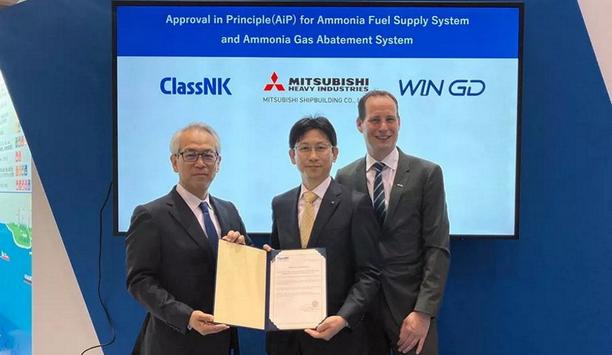Mitsubishi Heavy Industries - Experts & Thought Leaders
Latest Mitsubishi Heavy Industries news & announcements
Amogy, a provider of mature, scalable, and efficient ammonia-to-power solutions, and Mitsubishi Shipbuilding Co., Ltd. (MSB), a part of Mitsubishi Heavy Industries (MHI) Group, have completed the feasibility study of collaboration concept designs of onboard hydrogen production and utilisation with Amogy's ammonia-cracking technology and Mitsubishi Ammonia Supply and Safety System (MAmmoSS®). Amogy and MSB concluded a Memorandum of Understanding (MoU) to undertake feasibility studies on an ammonia fuel supply system, with the aim of contributing to a new target set by the International Maritime Organisation (IMO) of net zero greenhouse gas (GHG) emissions in the maritime industry by or around 2050. Reducing GHG emissions The studies were conducted by the two companies to confirm the feasibility of two collaboration The studies were conducted by the two companies to confirm the feasibility of two collaboration concept designs - a power train combining ammonia cracking and hydrogen fuel cell for ships - a hydrogen supply facility for supplying hydrogen as pilot fuel to ammonia fuel engines. Because ammonia is carbon-free, it has attracted attention as a fuel with the potential to contribute significantly to reducing GHG emissions in the maritime industry, and it is expected to be utilised in the future as a source of stable, clean energy. Reduction of environmental impacts To unlock the potential of ammonia, Amogy has developed an innovative ammonia-to-electrical power system that splits, or 'cracks', liquid ammonia into its base elements of hydrogen and nitrogen, which then funnels the hydrogen into a fuel cell, generating high-performance power. MSB will promote the decarbonisation of the maritime industry, realise a carbon-neutral society, and contribute to the reduction of environmental impacts on a global scale by continuing to develop marine ammonia handling systems, such as fuel supply systems for a wide range of ammonia fuel consumers include this collaboration for onboard hydrogen production and utilisation.
Mitsubishi Shipbuilding Co., Ltd., a part of Mitsubishi Heavy Industries (MHI) Group, has received orders from Toyofuji Shipping Co., Ltd. (Aichi Prefecture) and Fukuju Shipping Co., Ltd. Shizuoka Prefecture) for Japan's first methanol-fueled roll-on/roll-off (RORO) cargo ships. The two ships will be built at the Enoura Plant of MHI's Shimonoseki Shipyard & Machinery Works in Yamaguchi Prefecture, with scheduled completion and delivery by the end of fiscal 2027. The ships will be approximately 169.9 meters in overall length and 30.2 meters in breadth, with 15,750 gross tonnage, and loading capacity for around 2,300 passenger vehicles. Energy-saving system technology A windscreen at the bow and a vertical stem are used to reduce propulsion resistance, while fuel efficiency is improved by employing MHI's proprietary energy-saving system technology combining high-efficiency propellers and high-performance rudders with reduced resistance. The main engine is a high-performance dual-fuel engine that can use both methanol and heavy fuel oil, reducing CO2 emissions by more than 10% compared to ships with the same hull and powered by fuel oil, contributing to a reduced environmental impact. Methanol-fueled RORO ships Methanol-fueled RORO ships have already entered into service as ocean-going vessels around the world In the future, the use of green methanol may lead to further reduction in CO2 emissions, including throughout the lifecycle of the fuel. Methanol-fueled RORO ships have already entered into service as ocean-going vessels around the world, but this is the first construction of coastal vessels for service in Japan. Vehicle loading and transport capacity In addition, the significant increase in vehicle loading capacity and transport capacity per voyage compared to conventional vessels will provide greater leeway in the ship allocation schedule, securing more holiday and rest time for the crew, thereby contributing to working style reforms. Mitsubishi Shipbuilding, to address the growing needs from the modal shift in marine transport against the backdrop of CO2 reductions in land transportation, labour shortages, and working style reforms, will continue to work with its business partners to provide solutions for a range of societal issues by building ferries and RORO vessels with excellent fuel efficiency and environmental performance that contribute to stable navigation for customers.
Mitsubishi Shipbuilding Co, Ltd., a part of Mitsubishi Heavy Industries (MHI) Group, has acquired Approval in Principle (AiP) from the Japanese classification society - ClassNK for an ammonia fuel supply system (AFSS) for the ‘X-DF-A’, a large, low-speed 2-stroke ammonia-fuelled engine under development by WinGD, a Swiss designer and licensor of large marine engines. The AiP presentation ceremony took place at ‘Sea Japan 2024’ international maritime exhibition and conference at Tokyo Big Sight, in Tokyo, Japan. Mitsubishi Shipbuilding and WinGD concluded a MOU The AiP was acquired together with approval of a new ammonia gas abatement system (AGAS) In June 2023, Mitsubishi Shipbuilding and WinGD concluded a memorandum of understanding (MOU) to undertake joint technical studies on an AFSS, aiming to contribute to the achievement of a new target set by the International Maritime Organization (IMO) of net zero greenhouse gas (GHG) emissions in the global maritime industry by or around 2050. The joint studies resulted in finalisation in February 2024 of the basic design for an AFSS for the ‘X-DF-A’ engine under development by WinGD. The AiP was acquired together with approval of a new ammonia gas abatement system (AGAS), and now technical studies will go forward with WinGD toward commercialisation. Ammonia as an alternate fuel Because ammonia emits no CO2 when combusted, it is attracting attention today as a fuel with the potential to contribute significantly to reducing GHG emissions in the maritime industry, and it is expected to be utilised in the future as a source of stable, clean energy. Going forward, Mitsubishi Shipbuilding will continue to develop marine ammonia handling systems, including fuel supply systems for ammonia combustion systems for the X-DF-A and other engines, as well as various ammonia gas abatement system systems. Promote decarbonisation of the maritime industry In addition, by proposing the design and engineering of ammonia-fuelled ships and onboard plants - comprising multiple ammonia-fuelled combustion systems, such as main engines, power generation engines, and boilers - Mitsubishi Shipbuilding will promote decarbonisation of the maritime industry towards realising a carbon-neutral society, and also contribute to reduction of environmental impacts on a global scale.
Mitsubishi Heavy Industries MAC-20BF Auxiliary Boilers
Mitsubishi Heavy Industries MAC-25BF Auxiliary Boilers
Mitsubishi Heavy Industries MAC-30BF Auxiliary Boilers


